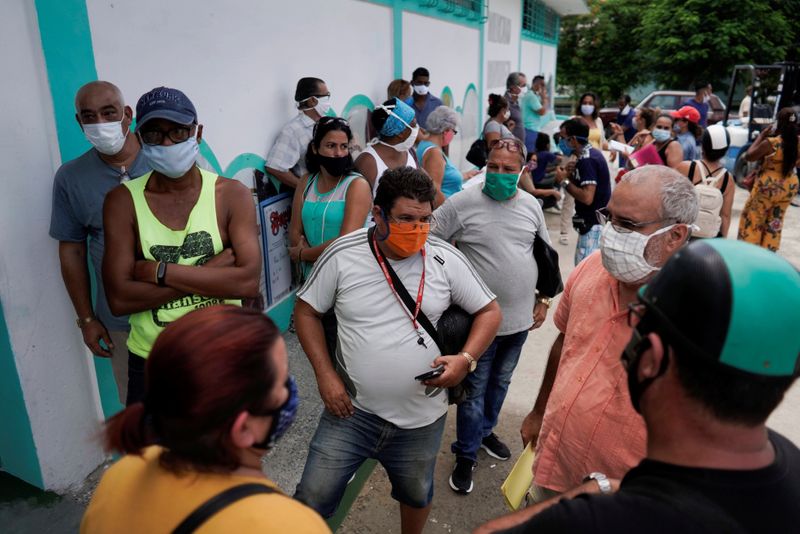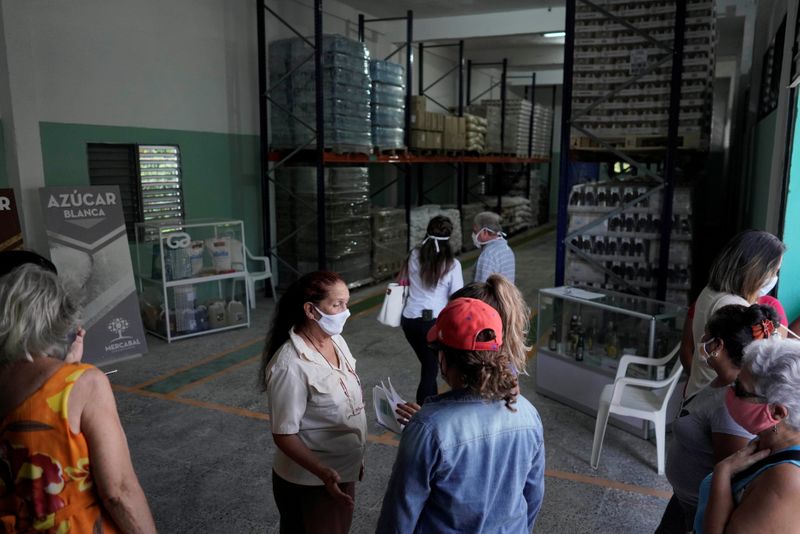By Marc Frank
HAVANA (Reuters) - Communist-run Cuba is loosening restrictions on small businesses as it seeks to stimulate a state-dominated economy hammered by the implosion of ally Venezuela, U.S. sanctions and the pandemic.
The import-dependent country is reopening after eliminating the new coronavirus in most provinces and bringing it under control in the Havana area.
President Miguel Diaz-Canel, however, speaking earlier this month, said the country faced an ongoing international crisis and would implement a series of reforms to increase exports, cut imports and stimulate domestic demand.
The economy is forecast to decline this year in tandem with the region, or a bit less than 10%.
The measures include more autonomy for state companies, farmers and local government, dollarization of some internal trade and, Diaz-Canel said, "the improvement of the non-state sector, with immediate priority in the expansion of self-employment and removal of obstacles."
The non-state sector, excluding agriculture, is composed mainly of small private businesses and cooperatives; their employees, artisans, taxi drivers and tradesmen. All are under the rubric of self-employed, numbering 600,000 before the pandemic left an estimated 40 percent tied to the tourism industry and public transportation without work.
One obstacle already removed is on the right to import and export, albeit through state companies.
"We want to put all forms of management on an equal footing,” Foreign Trade Minister Rodrigo Malmierca said last week during a televised roundtable discussion on the measures.
Economists at home and abroad note the government has promised equal treatment for a decade, so while they back the new measures, it remains to be seen whether they will actually - and effectively - be implemented.
The task is daunting as the government admits it has little foreign exchange to purchase food, fuel and other supplies from abroad, where the peso is worthless.
Cuba, where the state monopolizes retail and foreign trade, faced a liquidity crisis even before the coronavirus pandemic shuttered tourism and hit other revenue earners.
Pandemic fallout has worsened shortages of food, medicine and other goods and led to long lines at retail outlets.
“We hope that with these new measures doing business will improve,” said Maylen Diaz, who runs a cafeteria in the upscale Vedado area of the capital.
Diaz said that since reopening on July 10, she had faced a daily struggle due to a lack of tourists and supplies.
“I think that some businesses will still have to close, others will continue to subsist and resist as long as they can,” she said.
The first wholesale outlet for private eateries, Mercabal, opened last week in Havana boasting large formats and a 20% discount, but just a few products.
For more than a decade private businesses have been forced to purchase supplies from state retail shops or on the informal market.
"I saw the list: chicken, beer, sugar, salt, flour, rice; I think there is yeast, there is coffee,” cafeteria owner Enrique Penabella said, waiting in line with other business owners to sign contracts or pick up goods.

“But if they can’t do the same for people in the retail stores, I doubt they can keep it up,” he added.
